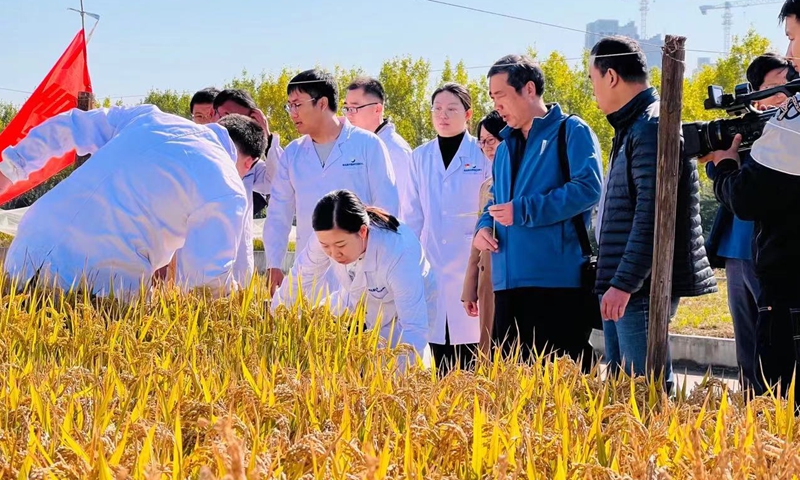
The Qingdao Saline-Alkali Tolerant Rice Research and Development Center organized experts to test output of saline-alkali tolerant rice on Tuesday. Photo: Courtesy of the Qingdao Saline-Alkali Tolerant Rice Research and Development Center
The field yield testing for a new high-quality salt-tolerant rice strain “Yanhuangxiangjing,” cultivated by a research team from the Institute of Genetics and Developmental Biology under the Chinese Academy of Sciences, was completed in Dongying in East China’s Shandong Province, with an output of 505.1 kilograms (kg) per
mu (0.06 hectares), science industry news outlet stdaily.com reported on Thursday.
Breeding new varieties of salt-tolerant rice represents a significant future direction in enhancing China’s rice production capacity, as the nation has a large amount of saline land with agricultural use prospects, according to the report, citing Wang Jianlin, a research fellow from the team.
Wang noted that “Yanhuangxiangjing” integrates several advantages including a strong salt resistance, suitable growing timing from July to September, while achieving a high-quality yield amid the impact of the saline-alkali environment.
The expert group conducting the yield testing said that “Yanhuangxiangjing” combines characteristics of salt tolerance, high quality, disease resistance, water efficiency and high yield, providing an important seed source to promote the use of saline land in China and is of great significance to guarantee national food security and sustainable agricultural development.
The output of salt-tolerance rice recorded a new high record
earlier in October, as the average yield surpassing 691.8 kg per mu, representing a major breakthrough in the country’s efforts to boost rice output.
Global Times




